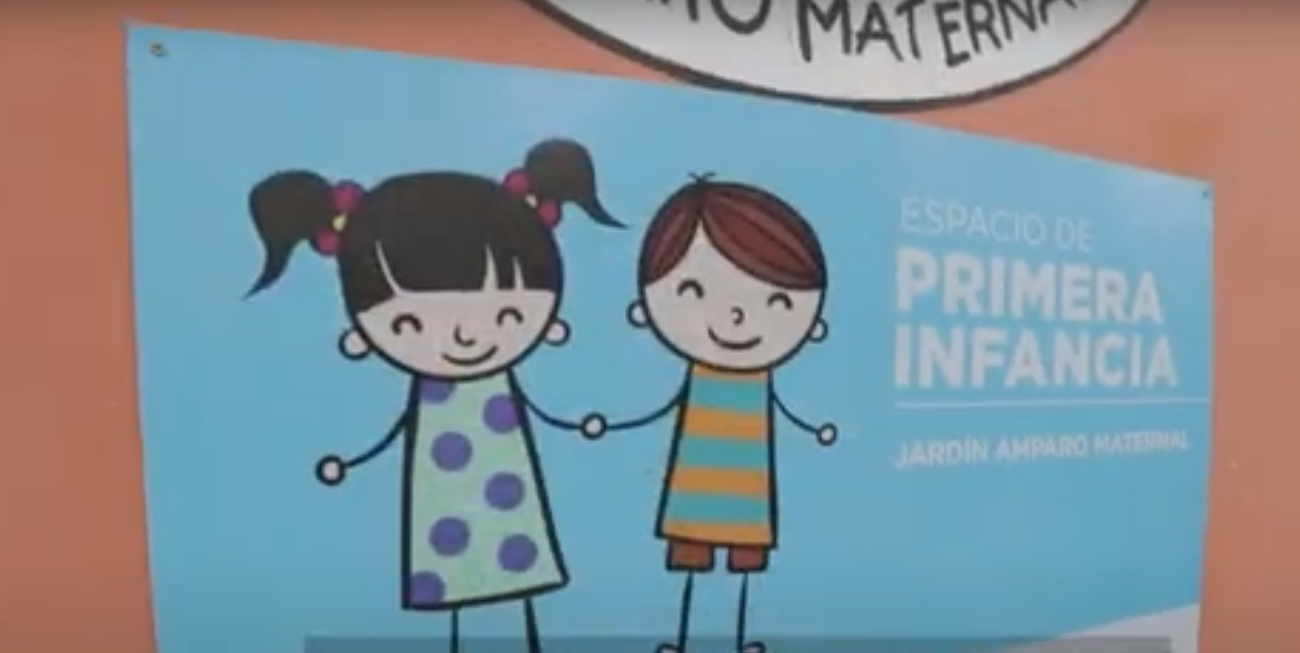In Argentina, early childhood programme helps break intergenerational cycles of poverty

Before COVID-19, Argentina faced challenges regarding its lack of an early childhood care system. Access to quality care services was insufficient, with significant differences depending on where a child was born, the labour conditions of their parents, and their income level. The pandemic deepened these pre-existing social and economic inequalities and highlighted the care crisis.
Placing care policies at the center of recovery plans was crucial to breaking the intergenerational cycle of poverty, ensuring the exercise of children's rights, improving the quality of life of society as a whole, and providing the State with more effective tools to bridge gender gaps.
The UN's early childhood and sustainable development joint programme supported the Argentine Government in implementing the National Early Childhood Strategy (ENPI in Spanish), which focused on strengthening childcare services at national and sub-national levels and reducing the inequality gaps among the 5.2 million children, of which 2.7 million live in vulnerable communities. The programme supported increasing the investment for the ENPI and identifying consolidated investment gaps at national and provincial levels.
The flexibility of the UN Resident Coordinator - with the leadership of the UN Children's Fund (UNICEF), the Economic Commission for Latin America and the Caribbean (ECLAC), the UN Development Programme (UNDP), and the International Labor Organization (ILO) - has been instrumental in allowing the programme to adapt to changing needs amidst the pandemic, reorient resources and redesign activities while maintaining the original goal: to contribute to the design and implementation of comprehensive early childhood care policies with a gender perspective.
Almost 3,000 early childhood education and care services workers across four provinces were trained on the psychosocial effects of COVID-19 and the impacts of social distancing and social confinement on children, giving them tools to comfort and nurture them. Comprehensive Early Childhood Strategies were put in place, and helped improve services provided by child daycare centres across the country, where the new curriculum emphasizes daycare centers as places of belonging, affection, and care.
At the same time, the UN’s integrated policy support to the Government enabled the scale-up of public policies to improve the living conditions of vulnerable women and mothers and their young children.
The UN generated timely evidence to improve early childhood public policy decision-making and funding. This included an integrated system of early childhood development-related indicators to monitor policies and the development of the Federal Care Map, which counts and tracks the available early childhood care services (public and private) with geo-referenced information.
Gathering evidence on the specific impacts of the pandemic on early childhood and on women (predominantly female single-headed households) to inform public-policy responses also, in turn, strengthens innovation for early childhood development policies aimed at indigenous children living in rural areas. On a broader level, improving childcare services and working conditions is helping raise awareness about the importance of fairer, more equitable access to care for vulnerable groups.
The Joint SDG Fund's joint programmes are under the leadership of the Resident Coordinator's Office in Argentina, and implemented by UN agencies on the ground. To learn more about the work of the UN team, visit: argentina.un.org.













